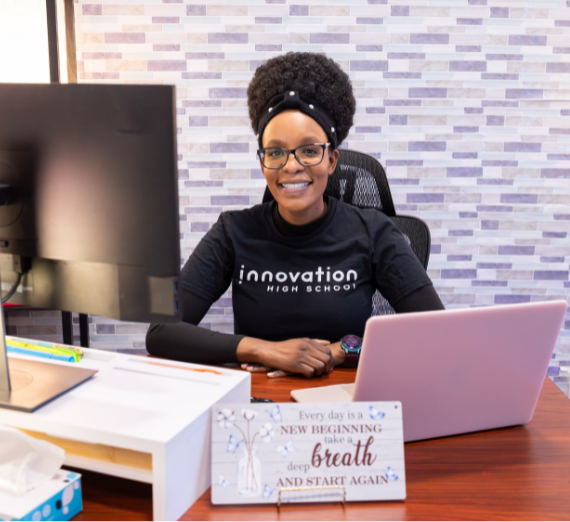Change Agents

Gonzaga’s School Psychology (Psy.D.) doctoral program is designed to create agents of change, to put forth graduates who would do tangible good in their schools and communities.
Miriam Carlson is already doing exactly that. Since earning her Education Specialist in School Psychology (Ed.S), she has been a practicing school psychologist at Innovation High School. Now, as she completes the final year of doctoral studies in the Psy.D. program, Carlson has broadened the ways she is able to help her students.
“Sometimes you get a case and it’s really challenging,” she said. “I’m able to look at cases in different ways. I can ask, How can I look at this as a psychologist? How can I look at this from a diagnostic lens?”
To Carlson, her work is about relationships. “I have to be accessible,” she said. “I know the names of my students. Kids come to my office between periods, and I ask how their brains are doing and how I can support them.”
Carlson also collaborated with Gonzaga students to provide small group counseling sessions to kids. “They’re figuring out interpersonal skills,” she said. “Gonzaga students are making sure everyone feels safe, knows they are supported, and wants to be there.”
Next year, Carlson intends to continue to provide social-emotional group counseling and help connect families to mental health resources outside the classroom.
“My internship will be completely clinical,” said Carlson, who plans to intern at a local hospital.
Earning her Psy.D. will provide her with a pathway to licensure as a psychologist; in the future, Carlson could work in clinical areas like psychiatry or pediatrics. A community-builder at heart, Carlson is excited in part to try working in a hospital setting in part because it paves the way for other Gonzaga students to do the same.
Miriam Carlson is already doing exactly that. Since earning her Education Specialist in School Psychology (Ed.S), she has been a practicing school psychologist at Innovation High School. Now, as she completes the final year of doctoral studies in the Psy.D. program, Carlson has broadened the ways she is able to help her students.
“Sometimes you get a case and it’s really challenging,” she said. “I’m able to look at cases in different ways. I can ask, How can I look at this as a psychologist? How can I look at this from a diagnostic lens?”
To Carlson, her work is about relationships. “I have to be accessible,” she said. “I know the names of my students. Kids come to my office between periods, and I ask how their brains are doing and how I can support them.”
Carlson also collaborated with Gonzaga students to provide small group counseling sessions to kids. “They’re figuring out interpersonal skills,” she said. “Gonzaga students are making sure everyone feels safe, knows they are supported, and wants to be there.”
Next year, Carlson intends to continue to provide social-emotional group counseling and help connect families to mental health resources outside the classroom.
“My internship will be completely clinical,” said Carlson, who plans to intern at a local hospital.
Earning her Psy.D. will provide her with a pathway to licensure as a psychologist; in the future, Carlson could work in clinical areas like psychiatry or pediatrics. A community-builder at heart, Carlson is excited in part to try working in a hospital setting in part because it paves the way for other Gonzaga students to do the same.
